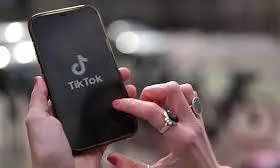
US Supreme Court upholds TikTok ban amid national security concerns
text_fieldsThe U.S. Supreme Court has upheld a federal law requiring TikTok’s Chinese parent company, ByteDance, to either divest its ownership of the app or face a nationwide ban.
The ruling, issued on Friday, marks the culmination of a legal battle that weighed free speech rights against national security concerns in the era of social media.
The Supreme Court found that the law, passed with strong bipartisan support in 2024 and signed by President Joe Biden, does not violate the First Amendment. This decision overturns a lower court’s ruling that had previously blocked the measure. The justices acted swiftly, hearing arguments on January 10, just days before the January 19 enforcement deadline.
TikTok, a widely popular platform with around 270 million users in the U.S., has long been under scrutiny due to its Chinese ownership. U.S. leaders have expressed concerns that ByteDance's ties to the Chinese government pose risks to national security. The Biden administration has maintained that the law is aimed at removing foreign control over TikTok and not restricting free speech.
During the Supreme Court proceedings, Justice Department lawyer Elizabeth Prelogar argued that TikTok’s vast troves of user data could be exploited by China for espionage, harassment, and covert influence operations. She emphasised that Chinese laws could compel ByteDance to secretly share data with the Chinese government or carry out its directives, posing a “grave threat” to U.S. security.
The ban coincides with the final days of Biden’s presidency, with incoming President Donald Trump set to take office on Monday. Despite his prior opposition to TikTok during his first term, Trump has recently softened his stance, expressing admiration for the app’s role in engaging young voters. However, many of Trump’s Republican allies, as well as prominent Democrats, remain supportive of the ban.
Incoming National Security Adviser Mike Waltz indicated that the new administration would explore options to keep TikTok operational in the U.S., provided a viable divestiture deal is reached. Senate Democratic leader Chuck Schumer has also advocated for extending TikTok’s timeline to secure an American buyer while ensuring national security protections.
TikTok and ByteDance have argued that the law violates First Amendment rights, not just for the company but also for its users, content creators, advertisers, and employees. TikTok, which employs 7,000 people in the U.S., warned that the ban would disrupt its user base and harm its business operations. The company has planned to cease U.S. operations by Sunday if no last-minute resolution is achieved.
Noel Francisco, representing TikTok and ByteDance, described the app as “one of America’s most popular speech platforms.” He criticised the law as targeting speech, suggesting that fears of potential misinformation are insufficient grounds for restricting access to the platform.
The law prohibits U.S. entities, including app stores operated by Apple and Google, from hosting TikTok unless ByteDance relinquishes its ownership. While this ruling marks a significant shift in U.S. policy towards foreign-controlled apps, efforts to negotiate a divestiture deal or secure a temporary extension may shape TikTok’s future in the United States.






















